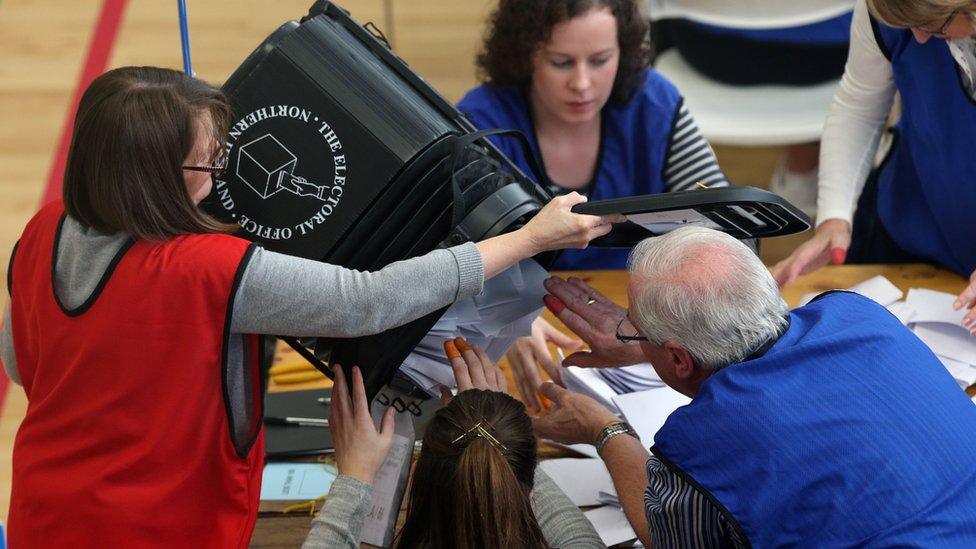Northern Ireland could face another snap election, says Brokenshire
- Published
- comments
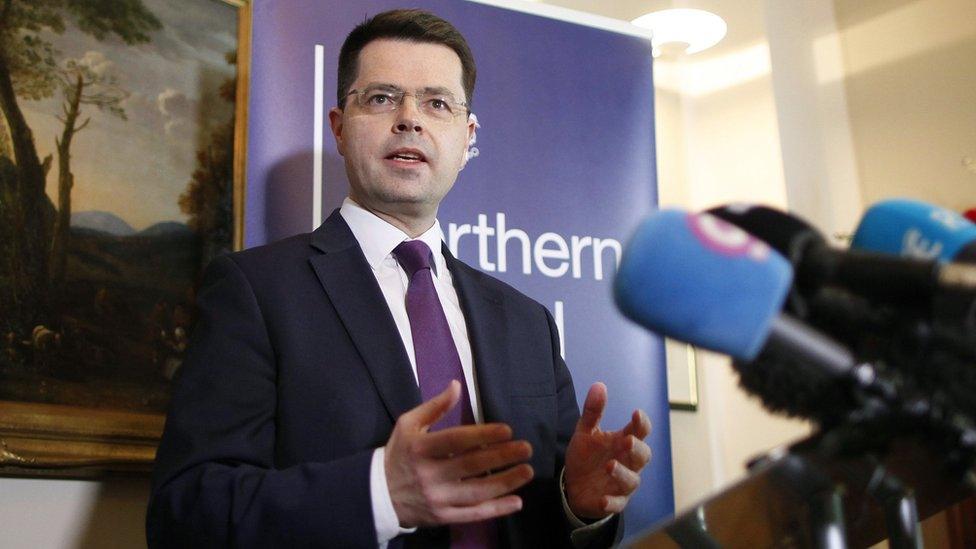
A second snap election would cause uncertainty and disruption, James Brokenshire said
Northern Ireland could face another election if political parties cannot reach agreement within three weeks, James Brokenshire has said.
The Northern Ireland Secretary warned that there would be "significant consequences" if there is no deal to restore Stormont's devolved government.
An election to the Northern Ireland Assembly was held last Thursday, which saw an end to the unionist majority.
Talks are being held to restore Stormont's power-sharing executive.
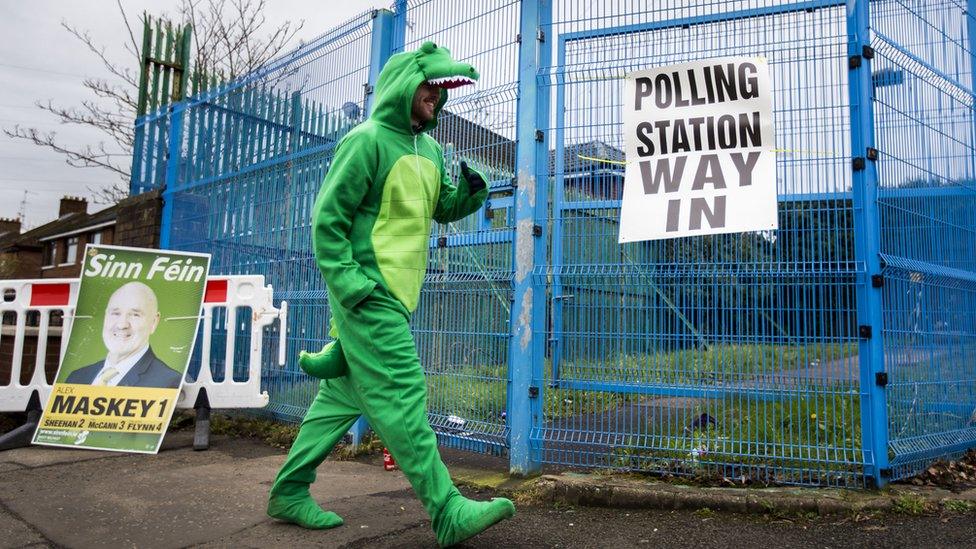
Voters in Northern Ireland went to the polls last week after a snap election was called
In a letter to MPs, Mr Brokenshire said that if the discussions fail there would be no executive or budget, causing "risks to public services".
"Ultimately, we would also be facing a second election," he added.
That, he said, would bring "disruption and uncertainty for businesses and the people of Northern Ireland".
After last week's election, Sinn Féin now holds just one seat fewer in the assembly than the Democratic Unionist Party (DUP).
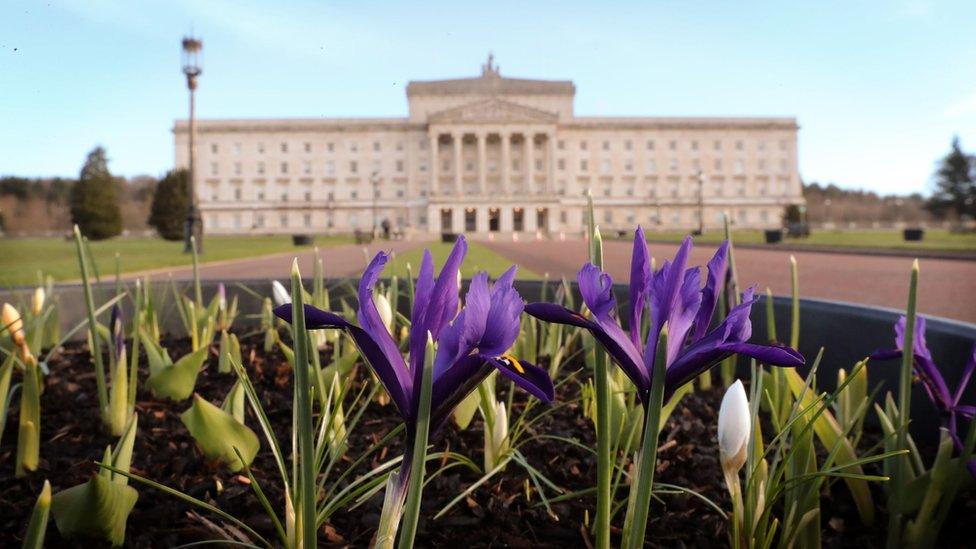
Talks are being held at Stormont in a bid to restore the power-sharing executive
Under Northern Ireland's power-sharing agreement, the executive must be jointly run by unionists and nationalists, with the largest party being invited to put forward a candidate for first minister.
Ultimately, if no executive is formed, power could return to the UK parliament at Westminster for the first time in a decade.
But in his letter, Mr Brokenshire wrote that he was "not contemplating any other outcome but a resumption of devolved government as soon as possible".
Meanwhile, DUP leader Arlene Foster has said she regrets comparing Sinn Féin to a "crocodile" ahead of last week's election.
In an interview with the Impartial Reporter, external, Mrs Foster said Sinn Féin was able to use the comment against her.
Arlene Foster said in February that she would not appease the Sinn Féin "crocodile"
At an election campaign event, she said she would not "capitulate" to Sinn Féin demands for an Irish language act, adding: "If you feed a crocodile they're going to keep coming back and looking for more."
Asked by the Impartial Reporter if she regretted making the remarks, Mrs Foster said: "I regret in so far as it allowed Sinn Féin to use it against me and to use it to demonise me.
"Sinn Féin mounted a campaign of demonisation against me and to a certain extent succeeded in that."
'On the table'
Talks are continuing between Northern Ireland's political parties and the UK and Irish governments.
Irish Foreign Affairs Minister Charlie Flanagan said progress in the discussions had been "slow" but he did "detect a willingness on the part of everybody to do business".
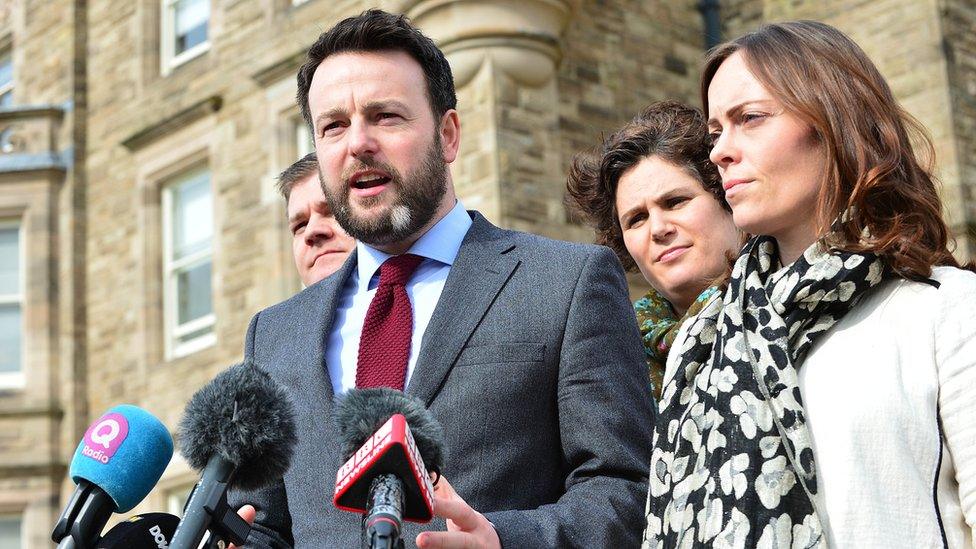
Colum Eastwood said parties "know the stakes" and "need to make sure that a deal's done"
On the suggestion of another snap election, Social Democratic and Labour Party (SDLP) leader Colum Eastwood said Mr Brokenshire "can threaten all sorts of things" but "needs to understand he has responsibilities as well".
"[The UK government] have taken their eye off the ball in the last number of months and years," he added.
"If they think they can place the blame on everybody else, they're barking up the wrong tree."
Sinn Féin's northern leader Michelle O'Neill criticised the UK government over its stance, so far, on dealing with the legacy of the Troubles and proposals for an Irish language act.
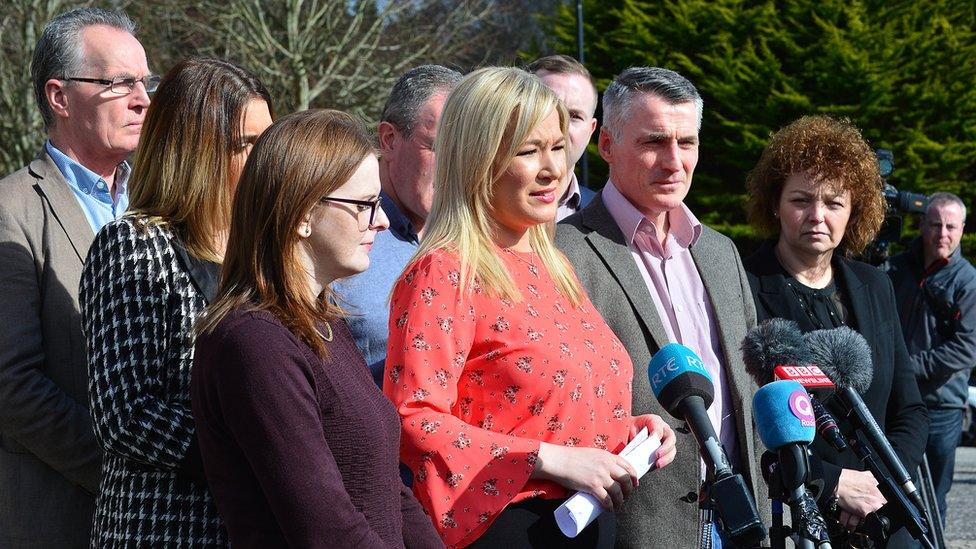
The UK government has not "put anything on the table" on key issues, Michelle O'Neill said
"We haven't seen anything being put on the table by the British government on how we can deliver on the key issues," Mrs O'Neill said.
"The British government need to deliver on basic human rights and not pander to the DUP."
The Alliance Party's deputy leader Stephen Farry said the parties "need to see the talks picking up the pace in the coming days".
He added: "If there was another election there would be a huge frustration from the people of Northern Ireland.
"People shouldn't be called out to the polls time after time after time, simply because the politicians can't do their jobs."
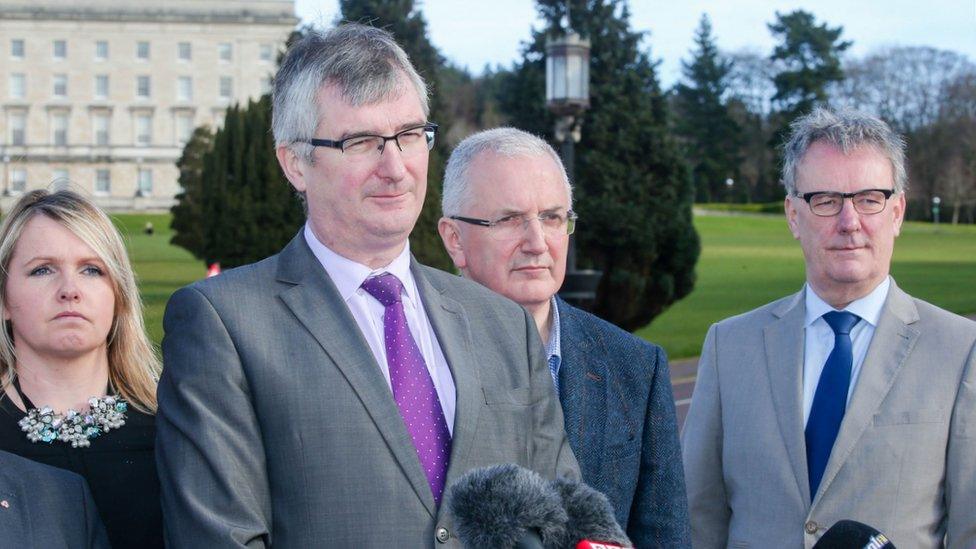
Tom Elliott said progress in political talks at Stomont "has been very limited"
The Ulster Unionists said the Irish government had not fulfilled its responsibilities over dealing with the legacy of the Troubles.
Tom Elliott, the party's chief negotiator, said the 1976 murders of 10 Protestant workmen at Kingsmills in County Armagh, was a sticking point in the talks.
Two years ago, Irish Prime Minister Enda Kenny told the families that his government would provide information it held in relation to the attack to a coroner for an inquest into the killings.
Some of the victims' families are unhappy with the level of information given by the Irish government.
"Unless they are going to bring us more information and bring those victims more information then I feel they are failing in their duties," Mr Elliott said.
In a statement, the Irish government said relevant material sought by the coroner "has already been provided to the inquest in accordance with the government's commitment" and it is in contact with the coroner to see how else it can assist in the inquest.
- Published8 March 2017
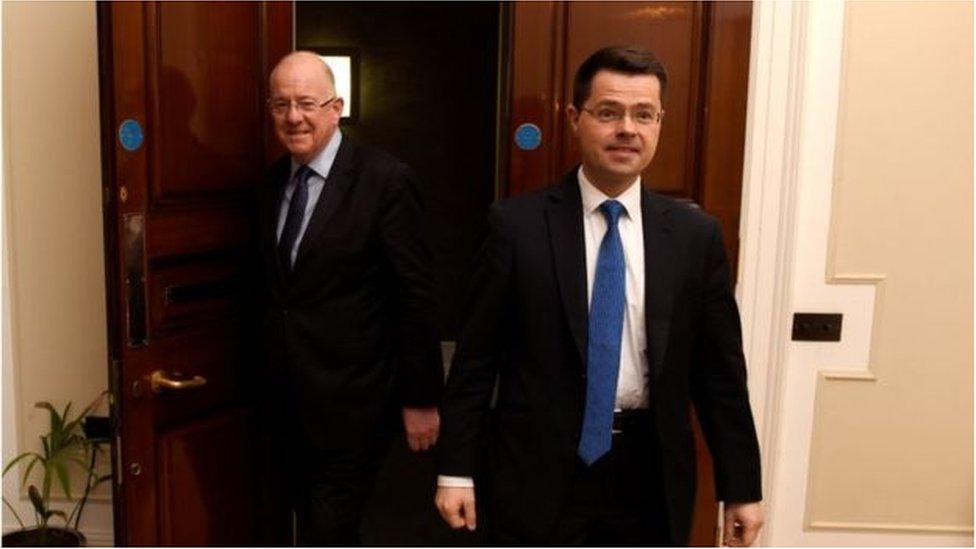
- Published4 March 2017
